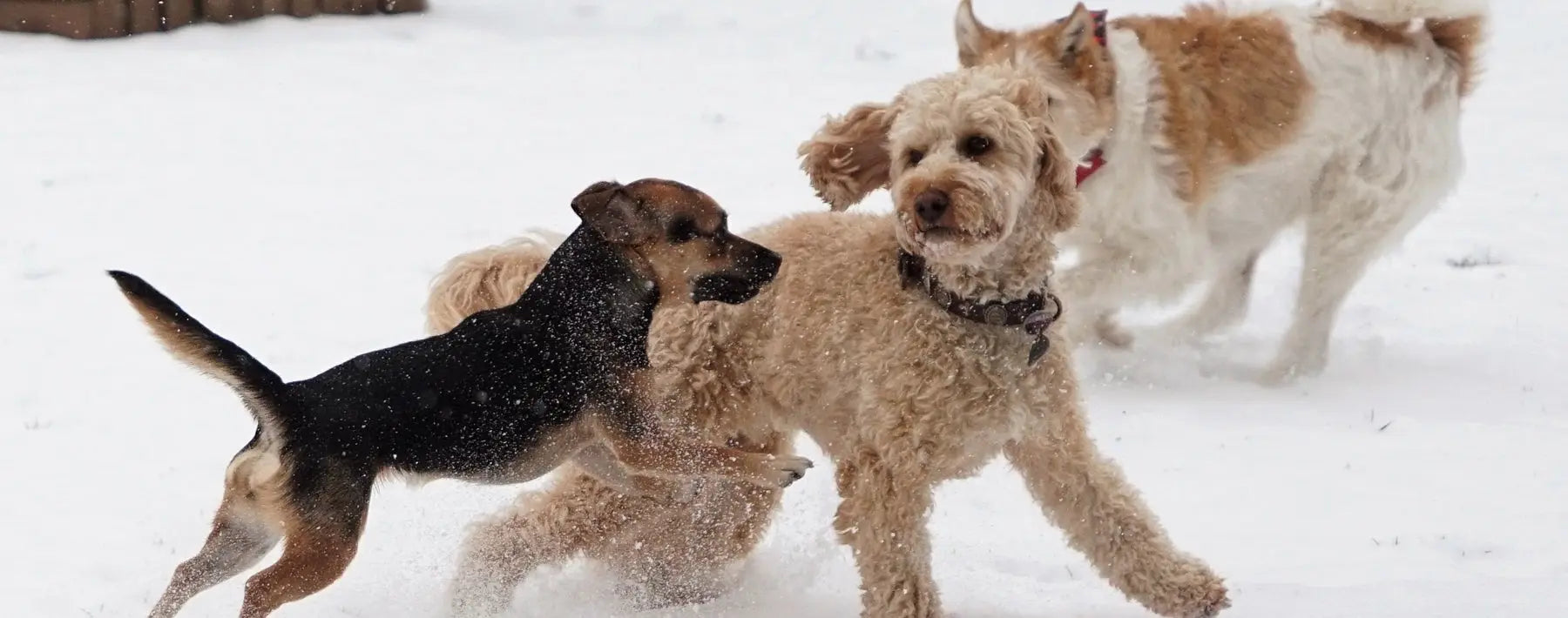
What should you pay attention to with dogs in winter?
Walks in the snow and cozy evenings in the dog basket – winter can be a very relaxing time for our four-legged friends.
In this PALOPA blog post you will find out how you can get through the cold season healthy and happy with your four-legged friend.
Animal Frostbite vs. Snow King
Is your dog more of a couch potato in winter? Does he prefer the cozy warmth of the apartment and is difficult to get excited about going for a walk? Or does he get completely freaked out by the sight of snow and start running around like a little child?
No matter which team your four-legged friend belongs to, make sure that your dog gets enough exercise despite the snow and cold in winter. Some dog breeds are even a little frightened by snow, especially when it comes from the sky. These dogs usually belong to the water-shy dog breeds. In this case, calm your dog down a little, take away his fears and make it clear to him that there is no danger here.

To strengthen your four-legged friend's immune system in winter, you can add vitamin C to his meals. You can find this, for example, in rose hip powder. You should also take your friend into account when controlling the temperature in your apartment and not set the heating too warm.
Cool winter style
Brrr that's cold! Some dogs are more susceptible to cold. This is true when they have no undercoat, such as the Pinscher, Dalmatian, Ridgeback or Vizslar. You can do something good for your dog by equipping him with functional dog clothing, such as a dog coat. Puppies as well as older or sick dogs also enjoy this helpful, warming accessory!

Did you know that dogs regulate their body temperature with their paws? Your dog's paws are robust and prepared for the winter. However, the road salt on the roads can irritate the skin and lead to cracked or dry bales. It settles between the cracks and causes pain there. But how do you know that your dog has problems with his paws? When he keeps holding his paw up! In this case, you can put dog shoes on your buddy, called “booties”. They provide the necessary protection from ice and road salt during walks.
After a long winter walk, you will probably catch your dog every now and then licking his paws and thus ingesting the road salt. This can lead to stomach problems. Therefore, make sure to clean your four-legged friend's paws with lukewarm water after every walk and then care for them with a little petroleum jelly.
Safety first!
In winter the days become shorter and you will often have to go for walks with your four-legged friend in the dark. Equip your dog with a light collar, a high-visibility vest or reflectors on his coat so that he is clearly visible to you and others. Of course the same applies to you too!
It's snowing!
Many dogs not only love to run around in the snow, they even like to eat it. Don't worry, eating a little snow won't hurt any dog! However, you should still make sure that your dog doesn't eat too much snow. Dogs with sensitive stomachs in particular do not tolerate ice-cold food well. Too much snow can cause stomach ache and cause diarrhea and vomiting.
You can easily avoid this by admonishing your dog and prohibiting him from eating snow. Also provide your dog with enough water before the walk - this will prevent your four-legged friend from eating the snow when they are too thirsty.

Want even more dog knowledge? Become part of the PALOPA community! Together with the experts from the HUNDIVERSUM ®, we regularly provide you with tips and information and look forward to a regular exchange.
Did you like the blog post? Then always stay up to date with our newsletter and be automatically notified about new blog posts. You can also get great discounts and freebies. Here go to registration.



Leave a comment
This site is protected by hCaptcha and the hCaptcha Privacy Policy and Terms of Service apply.